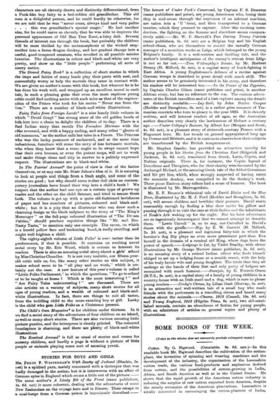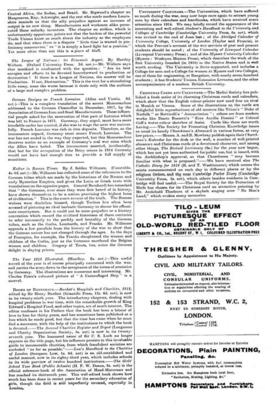SOME BOOKS OF THE WEEK.
[Notice Ws AO column dow sot nowasarily preclude subsequent reettv.1 Cotton. By G. Bigwood. (Constable. 6s. 6d. net.)--In this readable book Mr. Bigwood describes the cultivation of the cotton. plant, the invention of spinning and weaving machines and the development of the industry, the organization of the Lancashire cotton trade, the various food-products and explosives derived from cotton, and the possibilities of cotton-growing in India, Africa, and South America as well as in the United States. Ho shows that the rapid growth of the American cotton industry is reducing the surplus of raw cotton exported from America, despite the steady extension of the American plantations. Lancashire is vitally interested in encouraging the cotton-planters of India,
Central Africa, the Sudan, and Brazil. Mr. Bigvrood's chapter on Hargreaves, Kay, Arkwright, and the rest who made modern Lanca- shire reminds us that the silly prejudice against an increase of output is no new thing. Manufacturers and workmen alike perse- cuted these unlucky. inventors. The chapter on strikes, which is unfortunately opportune, points out. that the leaders of the powerful Trade Unions know as much about the industry as the employers do, and that when there is a dispute "little time is wasted in pre- liminary manceuvres," as "it is simply a hard fight for a position." Yet more often than not this is a piece of bluff.







































 Previous page
Previous page